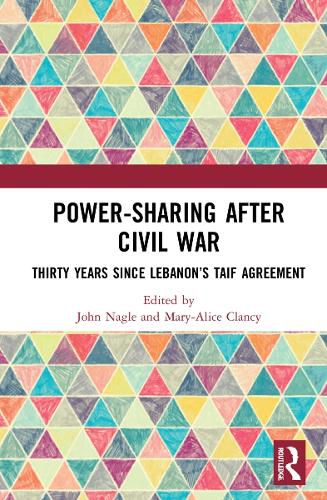Readings Newsletter
Become a Readings Member to make your shopping experience even easier.
Sign in or sign up for free!
You’re not far away from qualifying for FREE standard shipping within Australia
You’ve qualified for FREE standard shipping within Australia
The cart is loading…






This book provides a wide-ranging exploration of the legacy of Lebanon’s peace agreement in the 30 years since it was signed.
The chapters in this edited volume have been written by leading scholars and provide in-depth analyses of key issues in postwar Lebanon, including the performance of power-sharing, human rights, communal memory and sectarianism, conflict and peace, militias, political parties and elections. A core strength of the book is the multidisciplinary approach to understanding postwar Lebanon, ranging from political science, international relations, sociology, conflict and peace studies, history and memory studies. The multidisciplinary character of the book allows for a rich and detailed evaluation of the ongoing legacy and consequences of Lebanon’s postwar settlement.
The book will be of interest to scholars, students and people interested in contemporary Lebanese politics and society. It will also be attractive for a wider international audience interested in the consequences of postwar power-sharing systems and peace processes.
The chapters in this book were originally published as a special issue of the journal, Nationalism and Ethnic Politics.
$9.00 standard shipping within Australia
FREE standard shipping within Australia for orders over $100.00
Express & International shipping calculated at checkout
Stock availability can be subject to change without notice. We recommend calling the shop or contacting our online team to check availability of low stock items. Please see our Shopping Online page for more details.
This book provides a wide-ranging exploration of the legacy of Lebanon’s peace agreement in the 30 years since it was signed.
The chapters in this edited volume have been written by leading scholars and provide in-depth analyses of key issues in postwar Lebanon, including the performance of power-sharing, human rights, communal memory and sectarianism, conflict and peace, militias, political parties and elections. A core strength of the book is the multidisciplinary approach to understanding postwar Lebanon, ranging from political science, international relations, sociology, conflict and peace studies, history and memory studies. The multidisciplinary character of the book allows for a rich and detailed evaluation of the ongoing legacy and consequences of Lebanon’s postwar settlement.
The book will be of interest to scholars, students and people interested in contemporary Lebanese politics and society. It will also be attractive for a wider international audience interested in the consequences of postwar power-sharing systems and peace processes.
The chapters in this book were originally published as a special issue of the journal, Nationalism and Ethnic Politics.